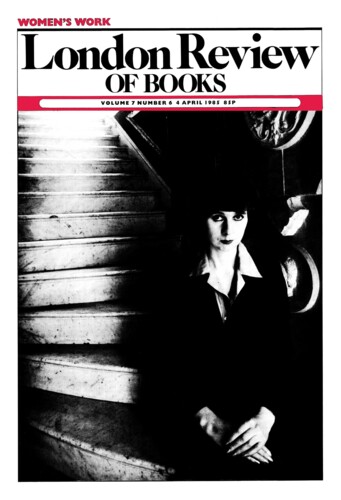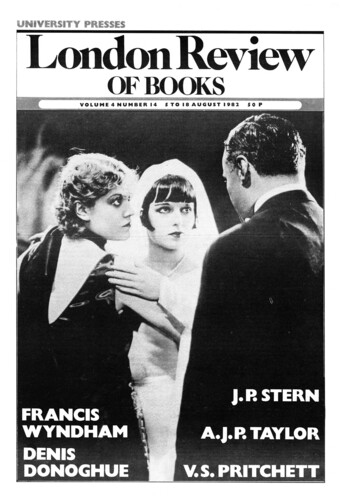Sheets
Robert Bernard Martin, 4 April 1985
When he first heard of William Morris’s death, Wilfrid Scawen Blunt wrote in his diary, ‘He is the most wonderful man I have known,’ then added more equivocally: ‘unique in this, that he had no thought for anything or person, including himself, but only for the work he had in hand.’ This handsome new edition of Morris’s letters does not entirely answer our natural question of how a man so often apparently unmoved by other persons should have had the explosive creative energy to become famous as poet, artist, decorator, printer, manufacturer and socialist. As Jane Morris’s former lover, Blunt was not unprejudiced about her husband’s paucity of feeling, but his judgment underlines the troubling mystification that Morris’s personality induces.



